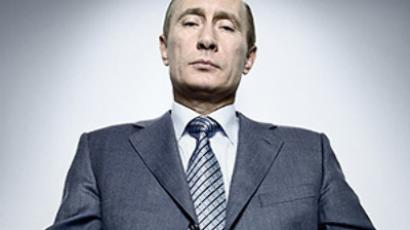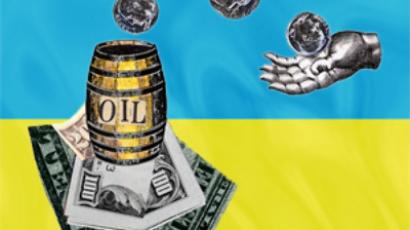Debate heating up over mining Arctic riches
The Arctic Five foreign ministers are due to meet in Canada soon to discuss the future of the Arctic. The countries have been locked in a tight race to lay claim to the riches believed to lie beneath the Arctic ice.
The five nations bordering the Arctic – Russia, Norway, Denmark, Canada and the US – have their hands outstretched for a piece of this pie.
It looks even more attractive, as experts claim the Arctic seabed contains around one-quarter of the world's oil and gas reserves. The scientists are central to deciding whose treasure house it is. Russia now claims the Arctic's two main shelves.
“Our geologists have to submit evidence to the UN that the shelves, Lomonosov and Mendeleyev, are part of Russia's mainland,” said scientist Pyotr Obraztsov.
“Moreover, I think the study should be done not just by our scientists but, rather, international experts. Otherwise the UN may think the proof has been forged or something else,” he added.
To perform research and to claim a stake in the Arctic, which many would term only symbolic, Russians plunged to the very bottom of the North Pole in 2007. Two submersibles planted a titanium Russian flag on the seabed at a depth of more than four thousand meters.
One year later, Canada and Denmark teamed up and spent millions of dollars on sea floor mapping – to prove that the Lomonosov Ridge is a natural extension of the North American continent.
Now the Arctic nations are anxiously preparing applications to the UN. Last year, Norway was the first to have their claim to their side of the Arctic shelf approved by the international organisation. Russia’s reaction followed shortly.
“Unfortunately, we are seeing attempts to limit Russia's access to the development and exploitation of Arctic fields which is, of course, unacceptable from the legal standpoint and unfair given the geographical location and history of our country,” said Russian president Dmitry Medvedev.
Canada, Norway and Denmark have already started a military build-up in the Arctic. The fact that some of the countries bordering the Arctic are increasing their military presence there leads to questions, such as what if the frozen conflict melts and turns hot?
“I do not think the countries will ever resort to the use of force over the Arctic,” Obraztsov said. “Scientists will do their job and will determine what belongs to whom. If it is ours, we will drill, if it is not – let it be so.”
With the scramble over the Arctic heating up there is even a suggestion to forbid any activities there except for scientific research, such as in Antarctica. But experts say with the Arctic this scenario is quite unlikely as there is too much at stake.
Russia's Foreign Minister Sergey Lavrov believes that questions over handling the oil and gas-rich Arctic region should only be resolved through peaceful means.
“The main conclusion from today’s discussion is that we have certainly confirmed the declaration we accepted a little more than two years ago in Greenland,” Sergey Lavrov said. “It unequivocally states that any issues in the region can and must be solved peacefully. Any conflicting claims related to the area outside the continental shelf should be addressed solely under the UN Convention on the Law of the Sea.”
Read also: Climate change, the Arctic and Russia’s national security














